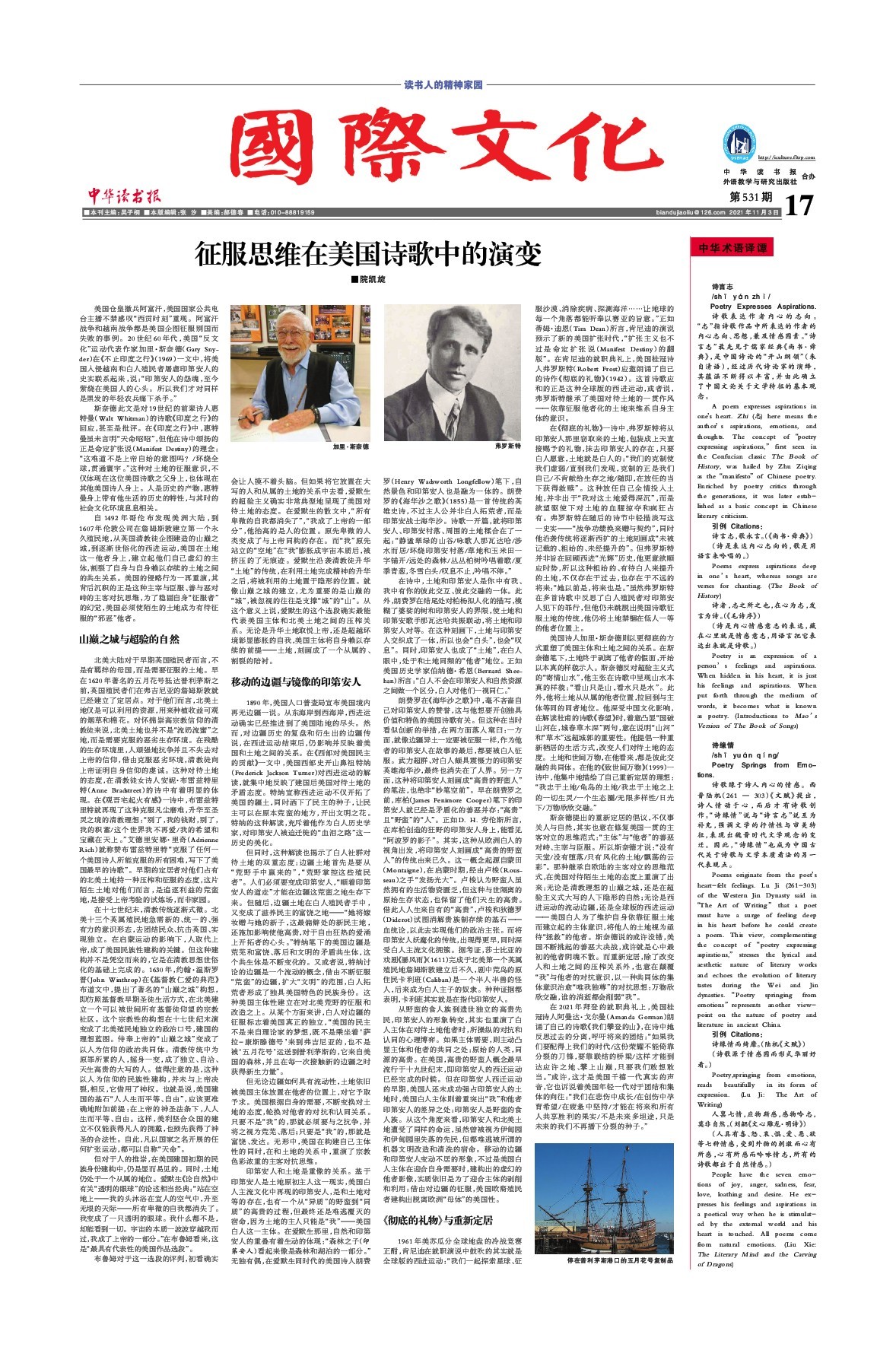/shī yán zhì/
Poetry Expresses Aspirations.诗歌表达作者内心的志向。“志”指诗歌作品中所表达的作者的内心志向、思想,兼及情感因素。“诗言志”最先见于儒家经典《尚书·舜典》,是中国诗论的“开山纲领”(朱自清语),经过历代诗论家的演绎,其蕴涵不断得以丰富,并由此确立了中国文论关于文学特征的基本观念。
Apoem expresses aspirations in one’s heart.Zhi (志) here means the author’s aspirations,emotions,and thoughts.The concept of“poetry expressing aspirations,”first seen in the Confucian classic The Book of History,was hailed by Zhu Ziqing as the“manifesto”of Chinese poetry.Enriched by poetry critics through the generations,it was later estab-lished as a basic concept in Chinese literary criticism.
引例 Citations:
诗言志,歌永言。(《尚书·舜典》)(诗是表达内心志向的,歌是用语言来吟唱的。)
Poems express aspirations deep in one’s heart,whereas songs are verses for chanting.(The Book of History)
诗者,志之所之也,在心为志,发言为诗。(《毛诗序》)
(诗是内心情感意志的表达,藏在心里就是情感意志,用语言把它表达出来就是诗歌。)
Poetry is an expression of a person’s feelings and aspirations.When hidden in his heart,it is just his feelings and aspirations.When put forth through the medium of words,it becomes what is known as poetry.(Introductions to Mao’s Version ofThe Book ofSongs)



 上一版
上一版


 缩小
缩小 全文复制
全文复制 上一篇
上一篇